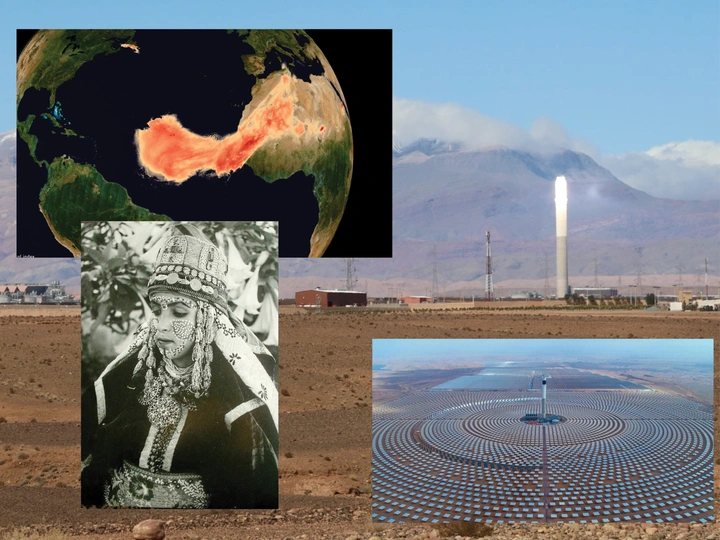New Ecological Order

Lesia Topolnyk is a Dutch-Ukrainian architect, artist, and researcher. She is the founder of Studio Space Station, a transdisciplinary practice based in the Netherlands. Her work explores how global power dynamics—such as energy transitions, extractive economies, and digital infrastructures—manifest in specific physical terrains and architectures. With a background in architecture, environmental design, and visual arts, she merges critical research, speculative storytelling, and site-specific design to reveal and reimagine the hidden infrastructures shaping our world.
Working across scales and media—from installations to strategic visions—Studio Space Station proposes architectures of awareness that are as poetic as they are political, offering regenerative responses to today’s most urgent global realities. The studio operates internationally, with projects in the Netherlands, the U.S., North Africa, and Eastern Europe. Lesia collaborates with local communities, institutions, and cross-disciplinary experts to develop spatial imaginaries that challenge dominant systems and open new civic and ecological possibilities.
Lesia was awarded the Prix de Rome for No Innocent Landscape, a project about a post-mining village in Eastern Ukraine, and received the Archiprix International for Un-United Nations Headquarters, a speculative design for the annexed Crimean Peninsula. Her work has been exhibited internationally, and she regularly lectures and teaches, while focusing on real-world impact.
Recent projects include New Ecological Order, which examines the impact of Europe’s energy transition on North African landscapes; The Garden of Earthly Delights, which reimagines a 49-kilometre siege line through experimental gardens; and The Governing Island, developed during a residency on Governors Island, New York. She is also continuing her project on global tech systems, which began during a residency at Red Clay, the studio of Ibrahim Mahama, in Ghana.
New Ecological Order is part of Lesia Topolnyk’s ongoing investigation into how global systems manifest in specific local and spatial conditions.
Initiated in 2023, New Ecological Order began as an inquiry into the physical, cultural, and ecological consequences of Europe’s energy transition on North Africa, with a focus on Morocco’s NOOR complex—the world’s largest concentrated solar plant. Now entering a new phase, developed in collaboration with Moroccan partner Think Tanger and supported by the Climate Justice programme of Creative Industries NL, the project explores how shifts in energy, climate, and technology produce new forms of extraction and exclusion—while also opening space for more just and regenerative imaginaries and systems.
Following extensive site-specific research in Morocco, Lesia developed the concept of experimental gardens and common spaces as curatorial tools for knowledge exchange and public engagement. These spaces foster transdisciplinary collaboration and include indigenous, human, and more-than-human actors as agents of ecological and spatial transformation.
Within the LINA community, Lesia seeks to deepen this methodology by engaging more closely with European contexts of climate injustice, where post-industrial legacies and infrastructural expansion demand renewed civic and ecological contracts. Together with LINA Members, she aims to co-create new visions—linking local realities to broader planetary dynamics of extraction, repair, and resistance.
The project may take the form of an exhibition, film, site-specific intervention, or collaborative public lab—culminating in events, lectures, or publications. At its core, New Ecological Order proposes bottom-up infrastructures of care and knowledge, revealing the often-invisible mechanisms of ecological injustice and imagining alternative futures from the ground up.